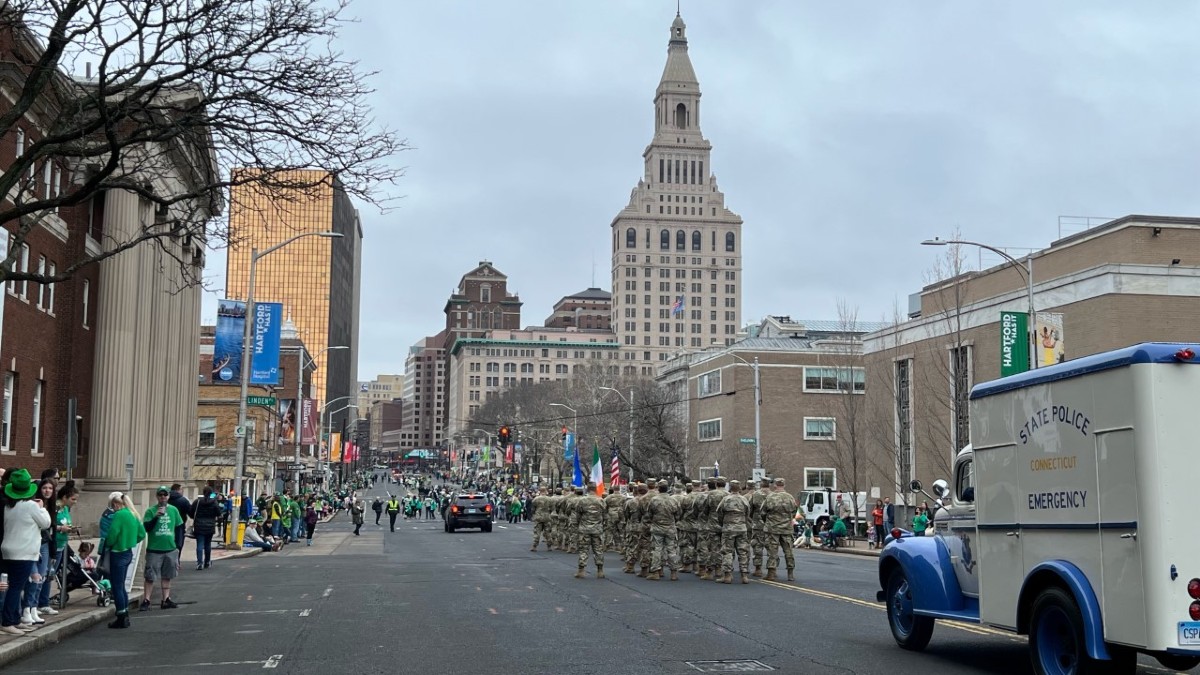“He says clearly that he wants his mission in life is to ruin my life,” Julie Minogue said in court testimony.
It would be the third and final time in less than a month that Julie Minogue would plead to authorities, including police and two judges, that her life was in danger.
“That's saying that he wants to ruin my life, so he wants to basically kill me,” Julie said in court testimony.
On Nov. 14, Julie told Milford Police that her ex-boyfriend and father of her 3-year-old son, Ewen Dewitt, violated a protective order after she said he sent her more than 220 harassing texts. On Nov. 17, a judge granted her a temporary civil restraining order. Days later, on Nov. 21, Milford Police submitted an arrest warrant application to the state’s attorney for the violation of the protective order, but it was denied and sent back to police requesting more information. And on Dec. 1, a judge granted an extension to the restraining order.
Get top local stories in Connecticut delivered to you every morning. Sign up for NBC Connecticut's News Headlines newsletter.
Julie’s father, Gerald Minogue, says his daughter went through the proper channels to alert authorities to what she saw as a dangerous situation.
“When I got there, they told me she was dead and then I heard the brutal details of it,” Gerald said.
I can't even fathom another human being doing that to another I mean, that’s barbaric.
-Gerald Minogue
Local
Three weeks after Julie went to police for more protection, she was murdered. Milford Police admit her request wasn’t processed.
On Dec. 6, a man was captured on a neighbor's Ring camera near Julie’s home, carrying an ax.
That same night, Milford Police say Ewen brutally attacked Julie with an ax at her Milford home in front of her 3-year-old and 17-year-old sons. He has not yet entered a plea in the case.
Julie’s death is part of a heartbreaking and ever-growing list of women in Connecticut whose partners were accused of their murders.
According to the Connecticut Coalition Against Domestic Violence, Connecticut sees 14 intimate partner murders every year, but the lethality of the murders, how they are carried out, has become even more extreme.
Another case of domestic violence shocked the community of Middletown involving a special education teacher.
Detective Christopher Iovene with Middletown Police investigated the 2018 case of a teacher who was stabbed to death at least 19 times in at her apartment after trying to end a dating relationship with her ex-boyfriend and neighbor Cornel Myers.
Myers was recently sentenced to 57 years behind bars for her murder.
Iovene says police had previously advised Myers to stay away from her after he showed up at her door and incessantly contacted her.
According to court testimony, Myers once called the victim 100 times in a short period of time, later using spoof phone numbers to try get a hold of her. The victim’s family told NBC Connecticut she had plans to file for protection the day after her murder.
“That's what it boiled down to was about him controlling her and using her,” Iovene said.
“Once a woman seeks a protective order, it becomes the most deadly time in that relationship,” Michele Voight with Violent Crime Survivors said.
Voight says 20% of domestic violence murder victims had protective orders in place. She says the other 80% of victims likely had issues with behaviors like stalking that would warrant a protective order, but when it comes to enforcing protective and restraining orders, Voight says it’s up to police on how to proceed.
“The police have discretion in that area. We also know for police, intervening in a domestic situation is typically violent, can be violent towards them as well,” Voight said.
This legislative session, there are several proposed laws to further protect victims of domestic violence in Connecticut including expanding the state’s GPS monitoring program for domestic violence offenders, improving response times between law-enforcement and the court system and upgrading the criminal code from manslaughter to murder for all offenders accused of killing their intimate partners.
Advocates say changes won’t bring back victims like Julie, but Gerald supports creating more protections for domestic violence victims as he and her three sons learn to live without her.
“Reminding them that, despite her not being physically present here, spiritually, she's sitting right on their shoulders,” Gerald said.



